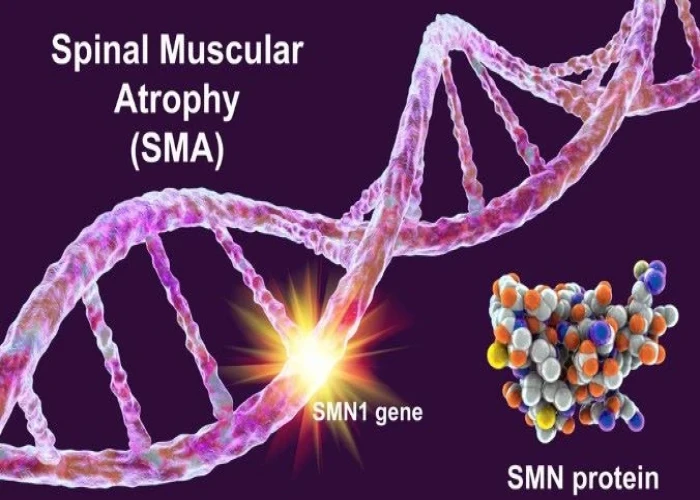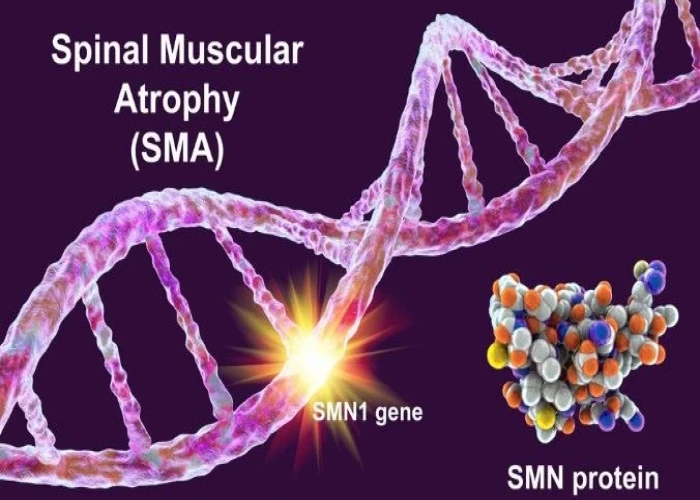 Welcome
Welcome
“May all be happy, may all be healed, may all be at peace and may no one ever suffer."
Multiple system atrophy (MSA)

Multiple system atrophy (MSA) is a rare and progressive neurological disorder that affects the autonomic nervous system and movement. MSA is characterized by a group of symptoms that include problems with movement, blood pressure, and control of the bladder and bowels. The cause of MSA is not known, but it is thought to be related to the degeneration of certain areas in the brain that control movement and autonomic functions.
There are two main types of MSA: MSA with parkinsonism (MSA-P) and MSA with cerebellar ataxia (MSA-C). MSA-P is characterized by symptoms similar to Parkinson's disease, such as tremors, muscle stiffness, and difficulty with movement, while MSA-C is characterized by symptoms of cerebellar ataxia, such as difficulty with coordination and balance.
Symptoms of MSA typically develop gradually over several years and may include problems with movement, such as stiffness, tremors, and difficulty with coordination and balance, as well as autonomic symptoms such as low blood pressure, bladder and bowel problems, and erectile dysfunction. Other symptoms may include slurred speech, difficulty swallowing, and sleep disturbances.
There is no cure for MSA, and treatment focuses on managing symptoms and improving quality of life. Treatment options may include medications to manage symptoms, physical therapy to improve mobility and balance, and lifestyle modifications such as a low-salt diet to manage blood pressure fluctuations. Some people may require supportive care such as urinary catheterization, feeding tube, or ventilation support.
Because MSA is a progressive disorder, regular follow-up appointments and monitoring are important to manage symptoms and adjust treatment as needed. A team of healthcare professionals, including neurologists, movement disorder specialists, and physical therapists, may be involved in the care of people with MSA.
Research Papers
Disease Signs and Symptoms
- Lose balance
- Difficulty controlling emotions, such as laughing or crying inappropriately
- Color changes in hands and feet caused by pooling of blood
- Heat intolerance due to reduced sweating
- Reduced production of sweat, tears and saliva
- Loss of bladder or bowel control (incontinence)
- Postural (orthostatic) hypotension, a form of low blood pressure that makes feel dizzy or lightheaded, or even faint, when standing up from sitting or lying down
- Visual disturbances, such as blurred or double vision and difficulty focusing eyes
- Slurred, slow or low-volume speech (dysarthria)
- Impaired movement and coordination, such as unsteady gait and loss of balance
- Slow movement (bradykinesia)
- Difficulty bending arms and legs
- Constipation
- Fever that lasts 24 hours or longer
Disease Causes
Multiple system atrophy (MSA)
There's no known cause for multiple system atrophy (MSA). Some researchers are studying a possible inherited component or involvement of an environmental toxin in the disease process, but there's no substantial evidence to support these theories.
MSA causes deterioration and shrinkage (atrophy) of portions of your brain (cerebellum, basal ganglia and brainstem) that regulate internal body functions, digestion and motor control.
Under a microscope, the damaged brain tissue of people with MSA shows nerve cells (neurons) that contain an abnormal amount of a protein called alpha-synuclein. Some research suggests that this protein may be overexpressed in multiple system atrophy.
Disease Prevents
Disease Treatments
There's no cure for multiple system atrophy. Managing the disease involves treating signs and symptoms to make you as comfortable as possible and to maintain your body functions.
To treat specific signs and symptoms, your doctor may recommend:
- Medications to raise blood pressure. The corticosteroid fludrocortisone and other medications can increase your blood pressure by helping your body retain more salt and water.
- The drug pyridostigmine (Mestinon) can raise your standing blood pressure without increasing your blood pressure while you're lying down.
- Midodrine (Orvaten) can raise your blood pressure quickly; however, it needs to be taken carefully as it can elevate pressure while lying down. You should not lie flat for four hours after taking the medication.
- The FDA has approved droxidopa (Northera) for treating orthostatic hypotension. The most common side effects of droxidopa include headache, dizziness and nausea.
- Medications to reduce Parkinson's disease-like signs and symptoms. Certain medications used to treat Parkinson's disease, such as combined levodopa and carbidopa (Duopa, Sinemet, others), can be used to reduce Parkinson's disease-like signs and symptoms, such as stiffness, balance problems and slowness of movement. These medications can also improve overall well-being.
- However, not everyone with multiple system atrophy responds to Parkinson's drugs. They may also become less effective after a few years.
- Impotence drugs. Impotence can be treated with a variety of drugs, such as sildenafil (Revatio, Viagra), designed to manage erectile dysfunction.
- Steps to manage swallowing and breathing difficulties. If you have difficulty swallowing, try eating softer foods. If swallowing or breathing becomes increasingly problematic, you may need a surgically inserted feeding or breathing tube. In advanced MSA, you may require a tube (gastrostomy tube) that delivers food directly into your stomach.
- Bladder care. If you're experiencing bladder control problems, medications can help in the earlier stages. Eventually, when the disease becomes advanced, you may need to have a soft tube (catheter) inserted permanently to allow you to drain your bladder.
- Therapy. A physical therapist can help you maintain as much of your motor and muscle capacity as possible as the disorder progresses.
- A speech-language pathologist can help you improve or maintain your speech.
Disease Diagnoses
Disease Allopathic Generics
Disease Ayurvedic Generics
Disease Homeopathic Generics
Disease yoga
Multiple system atrophy (MSA) and Learn More about Diseases

Mitral valve disease

MCAD deficiency

Heart murmurs

Dystonia

Adnexal tumors

Sclerosing mesenteritis

Broken collarbone

Blocked tear duct
Multiple system atrophy, msa, একাধিক সিস্টেম অ্যাট্রোফি, এমএসএ
To be happy, beautiful, healthy, wealthy, hale and long-lived stay with DM3S.
